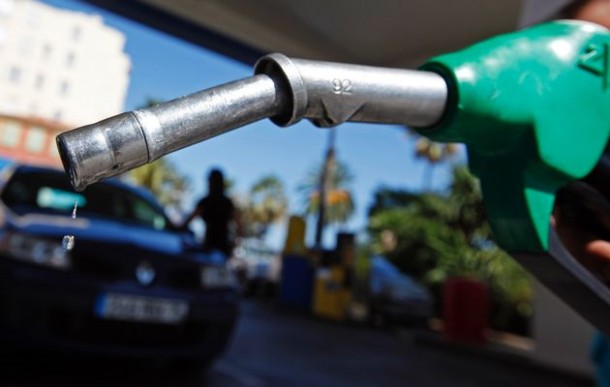Rumours that petrol pump price may be hiked primarily fueled last week panic buying as Nigerians witnessed a return to long queues at major filling stations, though it was short-lived.
This was against the backdrop of the advice of the International Monetary Fund (IMF), which suggested that Nigeria, Africa’s biggest oil producer, should remove fuel subsidy.
The issue of subsidy has become a tool in the hands of politicians, one expert said, adding that the All Progressives Congress had used it against the administration of former Goodluck Jonathan, calling it a scam.
The administration of President Muhammadu Buhari had increased the pump price of fuel in 2016, assuring Nigerians that with the complete removal of fuel subsidy, over time, the market would regulate itself and the price would drop.
While announcing the increment then, Minister of State for Petroleum Resources, Dr. Ibe Kachikwu had said the decision was to increase and stabilise the supply of the product, saying any Nigerian entity is now free to import the product, subject to existing quality specifications and other guidelines issued by Regulatory Agencies.
But few years down the drain, the Nigerian National Petroleum Corporation (NNPC) remain sole importer of Petrol, and marketers are already complaining the product’s landing cost which they say is not profitable for them.
Despite the increase in fuel pump price by almost 100 per cent on the basis that subsidy would be removed, Nigeria still spends heavily on fuel subsidy, necessitating the calls for hike in the pump price of petrol.
ALSO READ: Fuel scarcity spreads to Osun
In 2018 alone, Nigeria spent N730.9 billion on subsidising the retail price of petrol in 2018, an amount which was higher than funds allocated to education, health, infrastructure and other key ministries and parastatals that would have increased the economic growth or standard of living of its over 180 million people.
Buhari’s government has spent N7.9 trillion in the past four years importing petrol to augment supply from the country’s rickety refineries according to data from the National Bureau of Statistics (NBS). This is more than Nigeria’s entire 2017 budget of N7.2 trillion and 5 percent of the country’s current gross domestic product.
According to Ambassador Joe Keshi, President Buhari himself has said the oil subsidy is a fraud, “but we continue to sustain it at great cost to the national balance sheet?”
“So must we continue to do the same thing and expect different result? Don’t get me wrong, you are right about strengthening the Naira to reduce the petrol subsidy, which is even more difficult as we are more of a consumption nation with limited productive capacity. All efforts to diversify have not materialized, so how can the Naira be strengthened?
A Professor of Petroleum Economics and Policy Research at the Centre for Petroleum Energy Economics and Law, University of Ibadan, Wumi Iledare, said payments of subsidy is a gorilla that will swallow Nigeria’s economy and lead to the collapse of education institutions, road infrastructures and health facilities because the country spends more than one quarter of the budget subsidising petrol which benefits the elites more than the populace.
There seems to be some unwillingness on the part of the government to completely remove the de facto subsidies at this time, but despite these realities, the reaction from Nigerians has been immediate and sharp against any planned removal of subsidy which will lead to increase in fuel price.

 Football1 week ago
Football1 week ago
 Health & Fitness1 day ago
Health & Fitness1 day ago
 Featured5 days ago
Featured5 days ago
 Comments and Issues7 days ago
Comments and Issues7 days ago
 Education6 days ago
Education6 days ago
 Business6 days ago
Business6 days ago
 Business5 days ago
Business5 days ago
 Crime6 days ago
Crime6 days ago

